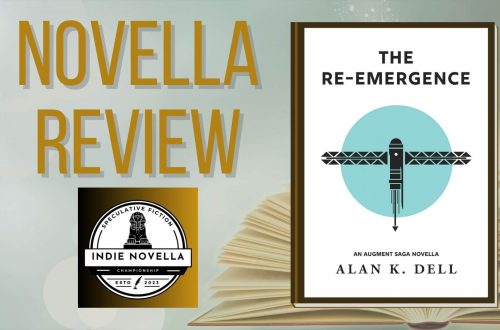Hi, I’m Tru and I’m an author who write books. You probably figured that out when you landed on my website and saw me promoting my lovely YA fantasy series! Hopefully you’re even here to learn more about my books, but hey, you can enjoy my website without feeling obligated to buy my book. And I won’t even mind if you buy my book and leave a one star review. Sure, that’ll suck for me, but hey, it’s your opinion. And your opinion matters.
Every now and then I come across a post on social media about an author who wasn’t happy about a certain book review, and they express their unhappiness by complaining about it publicly, or even attacking the person who wrote the review.
There’s this interesting relationship between author and book reviewer. To an author, the process of writing a book can be a very personal and painful birth. So hearing someone criticise their book baby can feel like a personal attack, and sometimes on the internet it can get personal. Unfortunately that’s the nature of the internet. It doesn’t matter if you wrote a best seller or an award-winner; someone, somewhere, will hate your book.
Reviews Are Subjective, Right?
The difficulty with book reviews is that they, too, are personal. Each review is the subjective and (hopefully) unbiased opinion of the person who read your book. To some, reviewing a book is business in the same way it can be for authors, but for others it’s a personal journey. When authors write a story, we want the reader to journey with us. That’s the promise we offer them. We want them to be fulfilled, to be entertained, to love this world and these characters as much as we did when we created them. But that’s not always going to be the case.
I’ve often thought that, as authors, we should separate ourselves from the reading space. Reviews are for readers. Places like Goodreads and book blogs are sacred sanctuaries that the author should respect and not disturb. But actually, as an author, I’m also a reader. I like to review books occasionally. There are plenty of popular books out there I didn’t like, and plenty of books I loved which didn’t get much hype because reading is so subjective. What works for me might not work for you and vice versa.
In my decision to separate myself from the reading space, I feel like I’ve neglected my reviewers. I fully appreciate anyone who reviews my book. There is absolutely no obligation for anyone to buy my book, read the whole thing, and then leave a review. The fact that people have taken time out of their lives to share their thoughts on my writing is humbling to me, and I’m incredibly grateful for that.
Negative Reviews Aren’t All Bad
There’s nothing wrong with getting negative reviews. If all your reviews are five stars, I tend to get a little suspicious. Having a few low ratings in your rankings can make your reviews look real, not curated. They’re nothing to be scared of. Why would any author discourage reviews, even negative ones? Getting reviews, especially for indie authors, is absolutely vital to climbing the Amazon rankings and selling enough books to keep writing more.
Not everyone is going to see my book the way I see it, and either that’s my failing as a writer, or the reader simply didn’t connect because they were looking for something I wasn’t offering. I read all the reviews for Sand Dancer that I could find, and whilst there wasn’t much I could do about the critical ones – the book’s already published after all – I did take on board the feedback so I could improve my future books and keep on evolving as a writer. I might not agree with all feedback, but it’s still something I can work with, and therefore I welcome it! I don’t really understand authors who can’t handle this feedback; we all had beta readers and editors reviewing our writing, didn’t we? Isn’t it the same thing?
Even a review which says “This sucks” tells me something. The reviewer thought my book sucked. That’s up to me, as a writer, to figure out why. Or not. I can go about my day, happy that other people enjoyed my book, and keep on writing. I’m not gonna get in a huff and write an essay explaining why they’re wrong.
What Authors Should Do
If you can’t handle reading negative reviews, then get someone to cherry pick positive reviews, or ignore them completely. Don’t go charging into your Goodreads page if you know reviews will hurt.
But reviews can also be useful if you can handle them. Reviews are for readers, yes. They’re not necessarily there to help the author improve. But knowing what readers enjoyed or didn’t is basically free market research!
Here are a couple of things we, as authors, should never do:
- Respond to a review negatively or explain to the reviewer why they are wrong/what you were trying to accomplish. This comes across as aggressive and belittling. Reviewers don’t need your explanation for why they didn’t understand certain elements of your story.
- Publicly shame a reviewer by taking a screenshot of the review or linking to it. Feel free to vent to your friends in private, but don’t publicly link or shame the reviewer. This definitely comes across as aggressive bullying.
- Ask the reviewer to change their review or star rating. This isn’t up to you to decide, and asking a reviewer to do this is also manipulation and bullying.
The exceptions to this are when reviewers themselves attack you with their review. I’ve seen authors receive negative reviews, private messages, and harassment because they chose to include LGBT characters for example. In which case, you’re within your rights to call out such harassment, though I’d personally try blocking such people first. It’s important both authors AND reviewers respect one another.
As authors, it’s up to us to make our readers feel comfortable sharing their honest thoughts and opinions. Don’t attack your readers unless you never want to get your book read or reviewed again.
And if you’re a reader currently reading this, I want YOU to feel safe reading my books! Know that if you choose to review my books, your thoughts are welcome.



